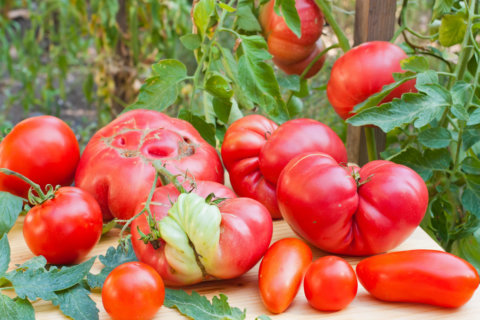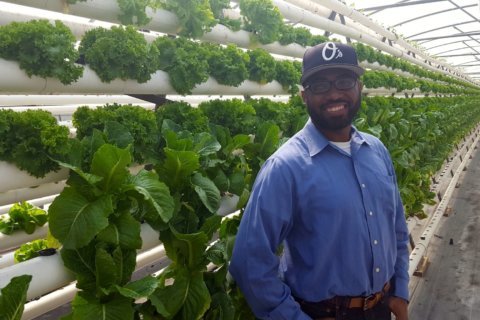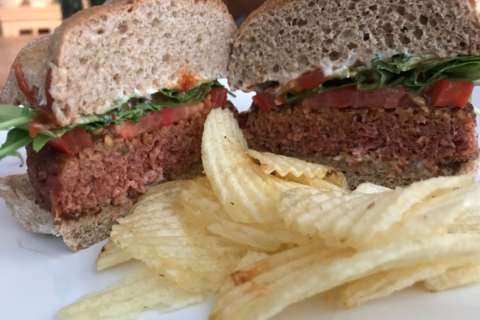WASHINGTON — There’s a new way to fight food waste, combat climate change, save money, and increase your fruit and veggie intake — and you don’t need to leave the house to do it.
Imperfect Produce, a San Francisco-based food delivery company that sources and sells oddly shaped or blemished fruits and vegetables, recently expanded its service to the D.C. area, meaning Washingtonians can now sign up for weekly deliveries of customizable boxes filled with greens, gourds and grapes that, for cosmetic reasons, never make it from the farm to the store.
“Produce grows in all different shapes and sizes,” said Ben Simon, CEO and co-founder of Imperfect Produce, which launched about three years ago and serves 15 city markets, including Los Angeles, Chicago and Seattle.
“So this produce tastes exactly like regular produce — it’s the same nutritional value, it’s just as healthy for you, it’s just as good on the inside — it just looks a little bit funny on the outside.”
Simon, a Montgomery County, Maryland native, began his work in food waste as a student at the University of Maryland. While there, he co-founded Food Recovery Network, which helps school campuses divert food that would otherwise end up in the trash to organizations working to fight hunger. Now, there are 230 chapters throughout 44 states, and more than 3 million pounds of food have been recovered.
With Imperfect Produce, Simon is tackling food waste at the farm level.
“Twenty billion pounds of perfectly good produce [is] getting wasted every year on farms, in large part because it’s too ugly for the grocery store,” Simon said.
“The most common reasons … [are] the size, scarring on the outside, and also just being a little bit misshapen sometimes.”
According to the U.N. Food and Agriculture Organization, almost half of all fruits, vegetables, roots and tubers (potatoes, yams) produced are wasted — and all of those tossed tomatoes and overlooked oranges have environmental implications.
According to the United States Department of Agriculture, food waste is the single largest component going into landfills, which are the third largest source of methane in the U.S. Project Drawdown lists reducing food waste as the third most important thing humans can do to reverse global warming, behind decreasing refrigerants and increasing wind energy.
“The big-picture impacts of food waste are enormous,” Simon said.
Imperfect Produce partners with 200 farms around the country, including roughly 20 in Maryland and Virginia, and takes their oversized potatoes and knobby carrots back to its distribution centers, where they get boxed up and delivered to subscribers.
Customers end up paying about 30 percent less than they would if they picked out a similar haul at the grocery store, Simon said. A seven-to-nine-pound box of fruits and vegetables from Imperfect Produce is $11 to $13; the organic option is $15 to $17, and Supplemental Nutrition Assistance Program (SNAP) recipients are eligible for a reduced-cost box.
Simon said customers aren’t the only ones who benefit from the model. Imperfect Produce also provides farmers with extra revenue.
“If they grew 100 acres of something, 80 acres of it would get sold and then you have just a massive, massive amount that’s not able to [sell] because of how it looks, and it’s mind boggling because you put just as much work into growing something that ends up looking a little bit funny,” Simon said.
Imperfect Produce will continue to grow its reach throughout 2019. Simon said the company plans to be in 27 markets by the end of the year.
“I think food waste is really having a moment,” he said.
“We’re seeing people all across the country show unprecedented awareness about just how much food is wasted and the environmental implications of starting to do something about that.”







